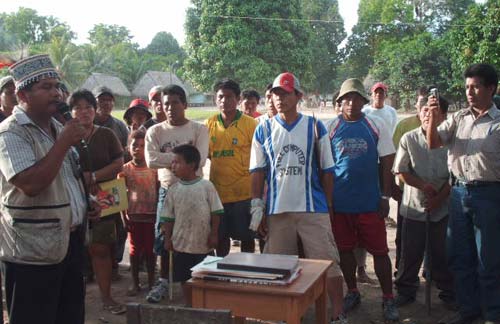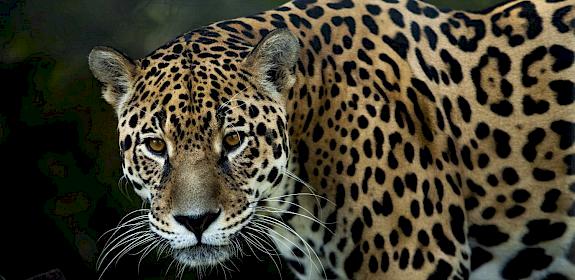Peru: indigenous people take control of their forest resources
Lima, Peru, 29th May 2013—Two indigenous communities within the Peruvian Amazon have formed a “Veeduría Forestal” or Forestry Oversight in a bid to curb the pillage of their forests by outsiders, to secure fair prices for their timber resources and to increase transparency in the management of incomes derived from it.

Forestry Oversight is a technical unit constituted by community members within their local community governance structure, and also within the wider regional organizational structures to improve leadership performance and understanding of forest conservation issues.
The newly created Forestry Oversight will oversee the operation of two existing organizations within two local communities: Federación de Comunidades Nativas Ashéninka de la Provincia de Atalaya “The Federation of Native Communities in the Province of Ashéninka” (FECONAPA) in Ucayali Province, and Federación Nativa del río Madre de Dios y Afluentes “Federation of Ingensous Peoples of Madre de Dios River and its Tributaries” (FENAMAD) in Madre de Dios Province.
“The creation of the Forestry Oversight watchdog is a vital step for these local communities, providing them with the opportunity to curb illegal logging and create an avenue for promoting transparency and fair business dealings for their forest produce,” said Braulio Buendia, TRAFFIC’s forestry expert and part of the team implementing a Living Amazon project. “The existence of such oversight bodies also facilitates the administration and management of the forest.”
A clear overview of forestry operations results in improved income for local communities thanks to fair prices being secured for timber resources. This is partly in response to better awareness of legal and administrative frameworks by community members as well as better implementation of the technical elements of forestry management and timber trade.
The carefully monitored incomes derived through Forestry Oversight will be invested in communal needs to improve health, communications and education. In turn this will boost the communities’ pride and confidence in sustainable management of their natural assets as the economic basis for their self-defined development standards and aspirations, without losing communities’ cultural values.
One of the main economic activities in the Amazon is the extraction and marketing of forest goods such as timber and wildlife. However, it is estimated that more than 80% of the wildlife traded and timber harvested in Peru is of illegal origin. Consequently extraction of these resources is developed without considering the minimum standards of environmental sustainability required by law, and often at a disadvantage for local communities. Indeed, illegal trade creates a major obstacle to the development of the peoples living in the Amazon and to sustainable management of their natural resources.
Initial reactions to the creation of Forestry Oversight have been favourable from the authorities as there is now a clear point of contact for co-ordination with local people in the management, control, monitoring and training related to forestry operations, while in the business sector there is now a perceived greater security and stability for their investments and for their trade and relationship with indigenous communities.
Bernardo Ortiz, Director of TRAFFIC in South America said “TRAFFIC has helped consolidate Forestry Oversight as an innovative tool to conserve forest resources and improve livelihoods across the Amazon region of Peru. It is a model designed to be easily replicated elsewhere in the region, as exemplified by Amazonia Viva in Colombia, and one that could easily be followed in other tropical forest regions of the world.”
“Key to Forestry Oversight is the empowerment of local communities with the right information, technical tools and skills to integrate with outside interests, creating a sound base for legal and sustainable forest resources use.”
“TRAFFIC’s efforts to create such grassroots mechanisms with the possibility of global replication is probably our best bet to help stop forest degradation processes that ultimately result in deforestation with all its ecological, climatic and socioeconomic consequences.”
This latest important step in the development of the Amazon and its peoples has been supported by the Living Amazon project, funded by the European Union and WWF Germany. The project is implemented in Peru by DAR, SNV, TRAFFIC and WWF-Perú, and in Colombia by Corpoamazonia, SINCHI, TRAFFIC and WWF-Colombia.



